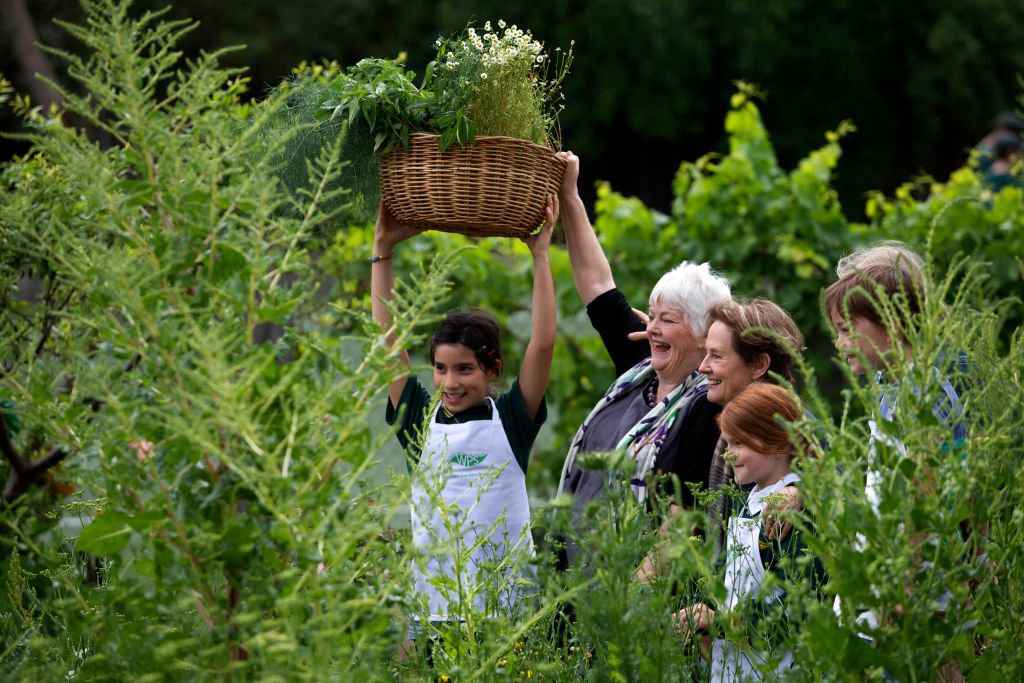Stephanie Alexander's Kitchen Garden Foundation sets a real-world example

In 2001, Stephanie Alexander approached Collingwood College with an idea.
She wanted to plant a school kitchen garden that would teach children how to grow fresh fruits and vegetables.
Alexander then wanted to show the students how to turn that produce into nutritious meals. “I wanted to introduce these kids to the most amazing range of foods and tastes. I wanted them to understand the right time of year for planting asparagus and sweet corn and to know when food is ripe in the garden,” she says.
“I want kids to be comfortable in the kitchen and garden and to make the connection between what they’ve grown and how to use it in the kitchen. I’d like to see every child in Australia have a kitchen garden as part of their primary school education.”
Since that first project in Collingwood, the Stephanie Alexander Kitchen Garden Foundation has spread to schools across Victoria and the rest of the country. An aim of the kitchen garden project is to teach children positive food habits to help reduce child overweight and obesity issues.
“We know this changes the way children feel about food,” says Alexander. “When we started at Collingwood College, many of the children had never seen things that I thought were pretty ordinary – like beetroot, rhubarb and silverbeet. These things were not part of their lives but once they made something using those ingredients they were incredibly proud of themselves and their horizons were widened.”
The Kitchen Garden Foundation is just one successful example of how schools are looking beyond academic studies and exam results to equip students with real-world and practical skills.
At Caulfield Grammar School, students are also looking beyond ATAR results to explore topics as diverse as financial literacy, safe-driving skills and drug and alcohol education. Around a fifth of 15-year-olds in Australia lack basic financial literacy skills according to an OECD report.
The OECD describes financial literacy as a core life skill and recommends schools start teaching these skills early. This is important for a generation growing up in a world that makes it easy to spend invisible money and to face difficulties when using buy-now-pay-later schemes.
The middle school program teaches students about budgeting and recognising financial scams. By year 12, students are learning about the intricacies of Australia’s tax system and how to manage credit cards and mobile phone contracts, says Stefaan Steyn, commerce learning area leader at Caulfield Grammar School.
The school’s pastoral and house system introduce older students to practical facts about the risks of drugs and alcohol on an age-appropriate basis.
“We work with specialists who talk to students about recognising when someone is struggling, recognising danger signs and how to support a friend in a crisis,” says Steyn. Student-run diversity assemblies are also a way for the student community to highlight, discuss and learn about social issues.
“Students with a particular interest in an issue work with teachers and put together a program for an assembly. They might present a video, arrange a panel with students, staff and external experts or bring in a guest speaker,” says Steyn.
Topics covered in previous assemblies include gender diversity, body image and how to increase acceptance of people from refugee backgrounds.
“Education is not just about the ATAR score. Students need a whole education and a values-based education that gives them a broader exposure to the real world,” he says. “We want them to have a sense that they’ve been given the skills and grounding to go into broader society.”
Sign up for the best of Domain Review in your inbox each week
We recommend
States
Capital Cities
Capital Cities - Rentals
Popular Areas
Allhomes
More







